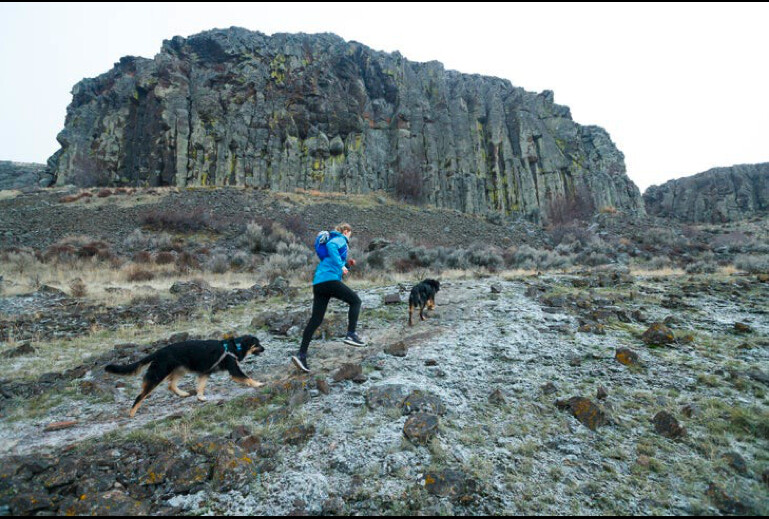Running News Daily
Running News Daily is edited by Bob Anderson. Send your news items to bob@mybestruns.com Advertising opportunities available. Train the Kenyan Way at KATA Kenya and Portugal owned and operated by Bob Anderson. Be sure to catch our movie A Long Run the movie KATA Running Camps and KATA Potato Farms - 31 now open in Kenya! https://kata.ke/
Index to Daily Posts · Sign Up For Updates · Run The World Feed
Why Elite Athletes Are Getting Serious About Mental Coaching
When his athletes describe the ways that stress has impacted their performance, clinical psychologist Justin Ross likes to tell them: "Welcome to having a mind." Ross specializes in mental performance coaching, a growing discipline aimed at helping athletes strengthen their competitive minds just like their bodies. "This stuff is pervasive," Ross says, from the amateur level all the way up to the elite echelons of sport. "The majority of things we may be struggling with are deeply human."
Athletes and coaches have long known that a sharp mental game can be the deciding factor in competition, and mental techniques like visualization and self-talk are often part of their preparation. But in recent years, there's been an uptick in awareness of formal mental skills training designed to develop and hone those techniques, as well as in the number of experts entering the field. In 2018, the Association for Applied Sport Psychology (AASP) certified 29 new mental coaches; in 2021, the number was 100. This has also coincided with a growing chorus of high-profile athletes, including Mikaela Shiffrin, Simone Biles, Chloe Kim, Naomi Osaka, and Nathan Chen, starting frank, public conversations about their mental health and the pressure to perform.


A few decades ago, the discussion around mental health and performance "didn't occupy the same space in sport that it does now," says Ben Rosario, the executive director and former head coach of Hoka Northern Arizona Elite (NAZ Elite), a Flagstaff-based professional running team.
That's beginning to change. In 2017, NAZ Elite began working with a mental performance consultant named Shannon Thompson. These days, most of the team meets weekly with Thompson for 30-minute group "focus sessions," which Rosario compared to short lectures, each with a lesson plan. One week, Thompson might discuss goal-setting; the next, how to handle the crux of a race. Often, the sessions end with a brief guided meditation. "There's a huge push in sports around mindfulness-based strategies," the performance psychologist and researcher Kevin Alschuler told me.
Still, unlike clinical therapeutic practice, which has certain legal restrictions around who can call themselves a psychologist, mental performance consulting is largely unregulated. Anyone can use the term mental coach. "I think the coaching world in general is sort of the Wild, Wild West," says Jon Metzler, who chairs the AASP's Certified Mental Performance Consultant council. The CMPC designation designation is intended as a bulwark against that: it requires applicants to have completed graduate-level coursework in subjects including sport psychology, ethics, and statistics and hours of practical experience under an approved mentor. A version of this certification was first established in 1992, and in 2020 it was accredited by the National Commission for Certifying Agencies, an organization that sets professional standards for certificates in many areas, including sports and healthcare. There are 644 CMPCs practicing today, although the number of mental coaches likely eclipses that. There's no official tally; in some ways, it remains a nebulous discipline.
In the summer of 2018, runner Danielle Shanahan turned pro and joined NAZ Elite. (She has since moved to the Mckirdy Trained High Performance team, with her fiance, Jack Polerecky, as her coach.) But she struggled to adjust to the training load and the altitude, and having come from a small college without the most pedigreed track program, she had a hard time convincing herself she was good enough.
"You can train as hard as you want, but if you get to the line and don't believe you belong there, it makes it really hard to perform," she says. In 2020, she started working one-on-one with Thompson. They developed a plan-including listing words, like "gritty" and "scrappy," that identified the athlete and person Shanahan wanted to be, and coming up with mantras-and it started to work. During one arduous workout that October, which was faster and longer than anything she'd done before, she felt the hurt set in. She began talking directly to her pain in her head: "Hi, pain, I'm acknowledging that you're here, and I'm going to harness this," she remembers telling herself. "I'm the one steering this ship."
That winter, she ran stronger than she ever thought possible. In one 10,000-meter race, she shaved a full minute off her personal best-even though she fell about halfway through. "It was probably the most badass thing that I've ever done in my life," she says. "I went into that race with an odd sense of calm."
The consultants I spoke with emphasize that mental coaching looks different for each person, but they typically start with an assessment of an athlete's goals and what's already working, or not, in their mindset. This allows them to come up with a plan tailored to the individual and their objectives. Mental coach and psychologist Jim Taylor, who works with a number of pro skiers, typically prepares notes and exercises for his clients to practice each week; sometimes, he joins them out in the field or even travels with them as part of their coaching staff.
In addition to visualization and self-talk, mental coaches often help athletes work on activation control, which is the ability to become calm or energized on command. Climber Kyra Condie started working with a mental performance expert in the lead-up to the Olympic qualifying events in late 2019. She found that listening to opera (Mozart's "The Magic Flute"; Prokofiev's "The Love for Three Oranges") could help her relax before bouldering and lead-climbing competitions. Other common mental coaching practices include simulation training, or replicating the mental and physical pressure of a competitive environment in practice, and handling social media. (Taylor advises his athletes to simply turn off their notifications before and during competitions, which may be easier said than done.)
And as with physical training, an athlete's mental training plan requires constant refining. Inevitably, there are setbacks. In early 2021, buoyed by her performance in the fall, Shanahan was still running with attack and determination. But she found there was a catch to her "I am going to crush everything and I am not going to fail at anything" attitude, she says. It didn't leave much room to cope with anything less than narrowly defined success. And it caught up with her when an injury that spring forced her to withdraw from the Olympic Trials. Shanahan didn't race for eight months-she returned in November for the USATF 5K championship in New York. The night before, she wrote in a journal entry: "I know in my gut that I can make the right decisions and put myself in the right positions to succeed to the best of my ability. After I can do that, the result will be what it will be."
The boundary between the therapeutic and performance applications of sport psychology is a blurry one; mental health and mental performance are often conflated, says veteran mental skills coach Colleen Hacker, who has served as a consultant to athletes at six Olympics. "Mental coaching is really about helping athletes perform better. Sport psychology is much more wide-ranging-in terms of personal development, mental health, and mental illness," Taylor says. "It's really one part of a bigger picture of the role that the mind plays in sport."
And for some, that boundary can feel especially porous. The mental performance consultant and ultrarunner Addie Bracy says that outdoor and endurance athletes often have a hard time separating their sense of self-worth from their performance in competition, in part because sports like skiing, climbing, or running have a strong lifestyle component.
At the Tokyo Olympics last summer, the United States delegation included four separate mental health experts for the first time-a psychologist, two psychiatrists, and a licensed counselor-which Bracy says reflects a new commitment to both mental health and mental performance. Some coaches, like the one Kyra Condie worked with, have a clinical background, but often they simply have enough education in psychology to know when they're out of their depth. That way, they can refer their athletes to the right kind of expert. (Peak mental performance and mental illness occupy different points on the same spectrum of mental health. Welcome to having a mind.)
In 2018, the downhill skier Breezy Johnson suffered a knee injury that ended her season. As she worked towards recovering physically, she started experiencing anxiety and depression, occasionally lashing out at her trainer and physical therapist. They recommended she start working with a sport psychologist-one with a background in mental performance coaching.
She approached her first appointment with skepticism. "I literally walked in and said, 'I don't need someone to mansplain to me how to visualize,'" she says. But as she returned to racing, she continued working with him as a mental coach. She found that her thoughts occasionally became preoccupied by the thought of crashing. "When you're doing a dangerous sport it's like, 'But also what if we die?'" she says.
She focused on acknowledging and setting aside that fear-a technique drawn from mindfulness. "When you fight those thoughts, you spend a lot of time doing this tug of war," Johnson says. "Instead, you can be like, 'OK, yes, you're not wrong, we all might die, we might crash, but the best way to move on is to return to the task at hand.'"
In December 2020, she raced to her first podium finish, placing third at Val d'Isere. She began the 2021/2022 season in Lake Louise with her first second-place finish. During that season, "I had several moments where I was like, this is it," she says. Mentally, she was in a good place, and she was skiing really, really fast. (Shortly before the Winter Olympics in Beijing, Johnson injured her knee during a training run and pulled out of the competition. She's planning to return to the snow in September and hopes to race this season. "It's been a long road," she wrote in an email in July. "I can't say that work with a sports psychologist or anything I have tried ever fixes that pain entirely," she continued, "but I know how to keep going to reach my end goal, both mentally and physically.")
Taylor says that athletes often seek mental coaching because of some specific performance block, but he wants to see more athletes proactively add it to their training routines. He compared mental skills training to physical preparation: "You wouldn't wait to get injured before you start getting conditioning," he says. "You wouldn't wait to have a technical flaw before you get a coach."
Several mental coaches cite the whiff of stigma that's still attached to discussions of mental health and, by association, mental skills training in sports. But the window of acceptable discourse is widening, in part because teens and twenty-somethings, including more athletes, are talking more plainly about mental health. "A few years ago, it almost felt shameful in certain respects for people to reach out," Ross says. "I think the conversation is really shifting-that mind and body need to be in alignment in order to perform well."
by Trail Runner Magazine
Login to leave a comment




